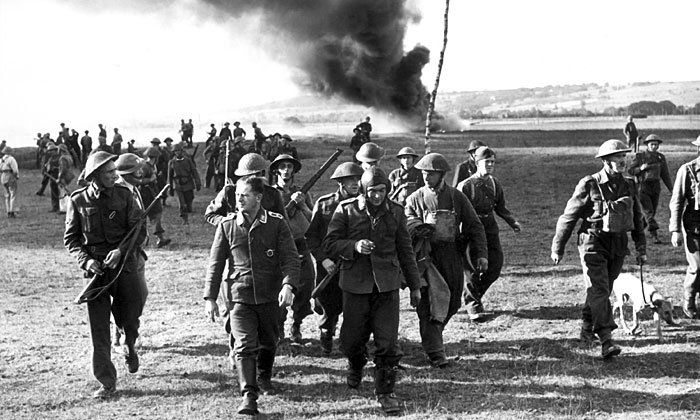Eventually some kind of order began to be restored, and at last I began my training as a Signalman. It was better than peeling potatoes and clearing latrines. I quickly learned the Morse Code and how to assemble and repair various instruments, and to send and receive messages both by voice and key. We trainees were then entered for the ‘tradesmens’ exam. – and to my delight I passed B2. As most operators in the Royal Corps of Signals only ever got to B3 this was something of a triumph and meant an extra two shillings a day on my pay.
Feeling that I was now a Master Signalman I volunteered for what was described as a dangerous but essential mission. It turned out to be the demolition of a dam in Northern Italy where the volunteers would be dropped by parachute; their return was to be by submarine after making their way to the coast. Fortunately for me, I did not actually go on this expedition as I suffered a badly sprained ankle whilst making my one and only parachute jump from a balloon. All those who did go were either captured or killed.
It’s not clear if all this happened at Tatton Park or somewhere else. I think it was at Tatton Park because of the parachute jump. Apparently, TP was THE centre for training parachutists at this time.
The Battle of Britain had now begun. It was fought in the skies, and had the Luftwaffe succeeded the invasion would have begun. Churchill was right when he said, “Never was so much owed by so many to so few”, when talking of our fighter pilots. Our unit was drafted to Dorsetshire to help to repel the expected German attack. We had a grandstand view of the aerial battle, and captured a number of downed German pilots.

The beautiful summer weather continued, and the immediate danger faded.